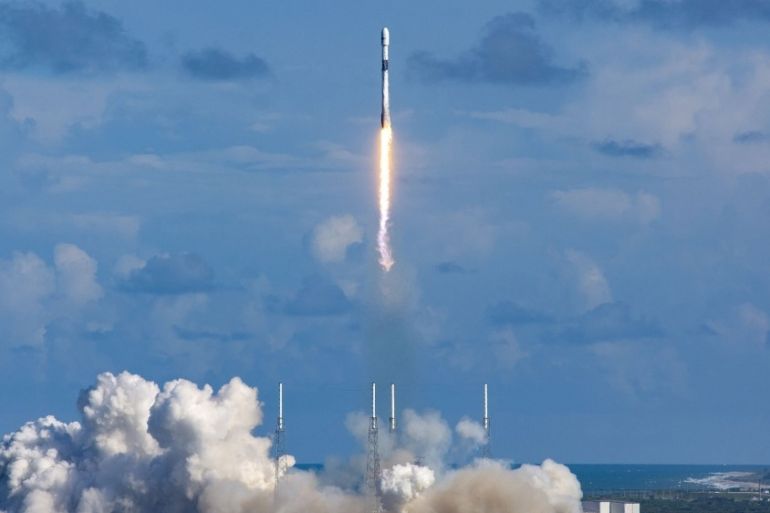South Korea launches first military satellite
The ANASIS-II satellite makes South Korea the 10th country in the world to own a military-only communications satellite.

Private operator Space X has launched South Korea’s first military communications satellite into space as Seoul looks to build up its defence capabilities against its nuclear-armed neighbour, North Korea.
South Korea’s Defense Acquisition Program Administration (DAPA), in a statement on Tuesday, said the ANASIS-II satellite lifted off from the Cape Canaveral Air Force Station in the US state of Florida at 5:30pm local time the previous day.
SpaceX, the private rocket company belonging to billionaire entrepreneur Elon Musk, confirmed the satellite deployed about 32 minutes after lift-off.
Liftoff! pic.twitter.com/Tn1kU6LtkB
— SpaceX (@SpaceX) July 20, 2020
DAPA said the launch made South Korea the 10th country in the world to own a military-only communications satellite, which will provide “permanent and secured military communications”.
The satellite is expected to reach its orbit level in two weeks, it said, adding that South Korea’s military will take over the system in October after testing.
Seoul is looking to enhance its military capabilities as it pushes to end an arrangement under which, if war breaks out, US commanders would have authority over their combined forces.
The satellite was “expected to improve the South Korean military’s independent operational capabilities”, an official at its defence ministry told Yonhap news agency.
Strains in alliance
Seoul and Washington are security allies and the US stations 28,500 troops in the country.
But their relationship has been strained in recent years, triggered by differences in their approaches to Pyongyang and over cost-sharing responsibilities.
Reuters news agency, citing South Korean officials, said the two allies were yet to agree on the scale, scope and timing of annual military exercises, which usually begin in early August, because the coronavirus pandemic had disrupted travel by US troops.
South Korean Minister of Defense Jeong Kyeong-doo and US Secretary of Defense Mark Esper had a telephone call on Tuesday but could not decide on details of the exercises, the officials told Reuters.
Jeong and Esper did not discuss any withdrawal of US soldiers, the South Korean official said, dismissing as “groundless” a recent Wall Street Journal report that the Pentagon had offered the White House options to reduce the US military presence in South Korea.